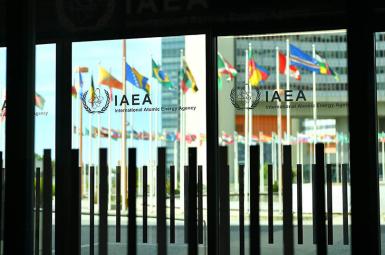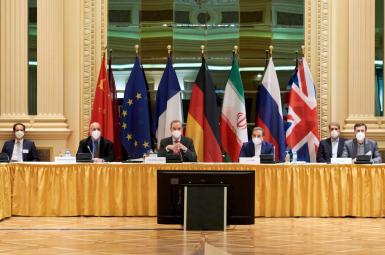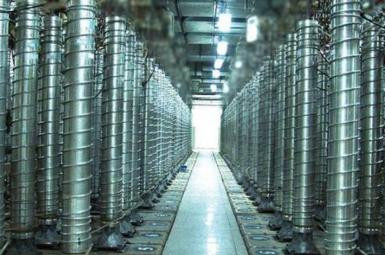
Rouhani Congratulates Iranians In Advance For UN ‘Victory' As Iran-US Tensions Mount
On Wednesday the Iranian President Hassan Rouhani offered his early felicitations to Iranians for what he said would be a “victory for Iran” at the United Nations Security Council (UNSC), where the United States wants by September 20 to implement a ‘snapback mechanism’ in Iran’s 2015 nuclear agreement with world powers, a move that would reinstate UN sanctions against Tehran.
US officials including Secretary of State Mike Pompeo have repeatedly said that Washington invoking the snapback mechanism of Iran's 2015 nuclear agreement with the world powers should reinstate the sanctions. What will happen in the Security Council, however, seems far from certain.
Speaking at a cabinet meeting on Wednesday, Rouhani predicted a “humiliating defeat” for the US and reiterated that Washington had no right to evoke the snapback provision given it withdrew from the nuclear agreement in 2018.
UNSC Resolution 2231 - which endorsed the agreement, officially known as the Joint Comprehensive Plan of Action (JCPOA) - states that a complaint of non-compliance can be made by any of the parties to the agreement, which was signed by the US, Iran, Russia, China, Germany, France, and the United Kingdom.
Washington submitted a proposal on August 20 to trigger the snapback mechanism on the grounds of Iran’s “significant non-performance”, given the expansion of its nuclear program beyond JCPOA limits since the US withdrawal two years ago. The US argues that this move triggered the snapback process, which should lead to the reimposition of UN sanction on September 20.
UNSC Resolution 2231 states that after the mechanism process has been put in place, other SC members can put forward a draft resolution within ten days to extend sanctions relief on Iran. Given such a relief resolution – which the US could veto as a permanent member of the UNSC—was not moved, the next step in implementing snapback would be a resolution by the Chair of the Security Council, something that the two consecutive chairs in August and September, Indonesia and Niger, have refused to do.
All parties to the JCPOA other than the US have so far supported Iran’s position and declared that since Donald Trump withdrew from JCPOA in May 2018 the US is not entitled to invoke a proposition of the agreement. The three European countries, known as the E3, on August 14 abstained from a UNSC vote over a US draft resolution to retain a conventional arms embargo on Iran after its October expiry date under the terms of UNSC Resolution 2231 and have so far refused to acknowledge a further US draft resolution to reintroduce all UN sanctions.
Struggling to save the agreement, the E3 have argued that Iran’s nuclear steps beyond JCPOA limits should be dealt with through the agreement’s dispute resolution mechanism. Following a meeting of E3 foreign ministers at
Chevening House in Sevenoaks, Kent on September 10 to discuss the situation, the German foreign office said, “The E3 agree: reject the U.S. snapback attempt and remain committed to preserving the nuclear agreement, but Iran urgently needs to return to full compliance.”
The US insistence on its position, despite being given a cold shoulder by the E3, has complicated its relations with the UN and with its European allies. The US envoy to the UN, Karen Craft, in August accused other UNSC members of “standing in the company of terrorists” and the situation may end in a standoff if the E3 do not change their position.
On the other hand, Iran's claims of victory are premature as any change in the E3 position in the next few days could potentially bring back all UN sanctions. Domestic Iranian politics may also impinge, given recent measures by hardliners – including hanging 27-year-old wrestler Navid Afkari in the face of international opposition –are seen by some analysts as attempts to undermine Rouhani’s efforts to improve Iran’s standing, especially with the Europeans.
Tensions between Iran and the US have been mounting ahead of the date the US expects UN sanctions on Iran to resume. On Tuesday September 15 US-backed peace deals were signed in Washington between Israel and two of Iran’s neighbors, the United Arab Emirates and Bahrain. Iran has strongly condemned the Arab-Israeli deals.
US officials, including Secretary of State Mike Pompeo, have also implicitly backed a claim by Politico on Monday that Iran had been weighing a plot to kill the US ambassador to South Africa. In an interview with Atlantic Council President and CEO Fredrick Kempe, Pompeo refused to comment on specific intelligence but pointed out that “this has been their [Iran’s] model for 40 years.” In a tweet on Tuesday, Trump reiterated the allegations of an assassination plot by citing “press reports.”
Mohammad Javad Zarif, Iran’s foreign minister, retorted that “the habitual liar” – a reference to Israeli Prime Minister Benyamin Netanyahu – had “bamboozled” Trump into assassinating Iran’s Qods Force Commander Qasem Soleimani in January “by raising a false alarm”, and that Netanyahu was now trying to suck the US president into the “mother of all quagmires by leaking a new false alarm.”








